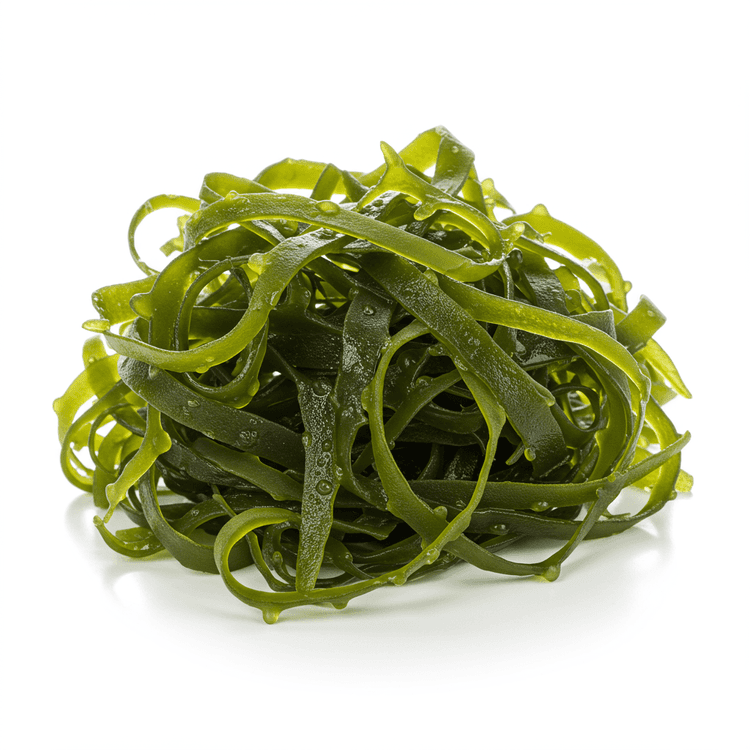
Seaweed
Seaweed is a nutrient-rich, edible marine algae that comes in various types, such as nori, wakame, and kombu. It has a briny, umami flavor with a slightly chewy texture, making it a popular ingredient in Asian cuisines. Seaweed is typically dark green, brown, or red in color and is packed with essential minerals like iodine, calcium, and magnesium. Its versatility and health benefits make it a sought-after ingredient for soups, salads, sushi, and snacks, as well as a natural flavor enhancer in broths and sauces.
Common Uses
- Used as a wrapper for sushi rolls, particularly nori, which adds a savory, umami flavor and a crisp texture when toasted.
- Incorporated into soups and broths, such as miso soup or dashi, to impart a deep, oceanic flavor.
- Added to salads, either fresh or rehydrated, for a nutrient boost and a slightly chewy texture.
- Used as a seasoning or garnish, often in powdered or flaked form, to enhance the flavor of rice, noodles, or roasted vegetables.
- Made into crispy seaweed snacks by roasting and lightly salting, offering a healthy, low-calorie snack option.
- Blended into smoothies or health drinks for its high mineral content and detoxifying properties.
Nutrition (per serving)
Nutrition (per serving)
Calories
45.0kcal (2.25%)
Protein
5.0g (10%)
Carbs
9.0g (3.27%)
Sugars
0.5g (1%)
Healthy Fat
0.4g
Unhealthy Fat
0.1g
% Daily Value based on a 2000 calorie diet
Nutrition (per serving)
Calories
45.0kcal (2.25%)
Protein
5.0g (10%)
Carbs
9.0g (3.27%)
Sugars
0.5g (1%)
Healthy Fat
0.4g
Unhealthy Fat
0.1g
% Daily Value based on a 2000 calorie diet
Health Benefits
- Rich in iodine, supporting thyroid health and hormone regulation.
- High in antioxidants, which help combat free radicals and reduce inflammation.
- Contains essential vitamins and minerals like vitamin K, calcium, and magnesium for bone health.
- A natural source of dietary fiber, promoting healthy digestion and gut health.
- Low in calories and fat, making it ideal for weight management and heart health.
- Contains omega-3 fatty acids, supporting brain function and cardiovascular wellness.
Substitutes
Chefadora AI is here.
Experience smarter, stress-free cooking.
Storage Tips
Store dried seaweed in an airtight container in a cool, dry place away from direct sunlight to maintain its texture and flavor. For fresh seaweed, wrap it in a damp paper towel and refrigerate in a sealed container, using it within 3-5 days. If freezing, blanch fresh seaweed first and store it in a freezer-safe bag for up to 6 months.
Marnirni-apinthi Building, Lot Fourteen,
North Terrace, Adelaide, South Australia, 5000
Australia

